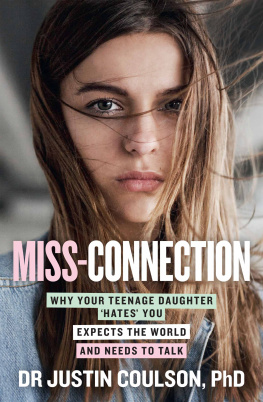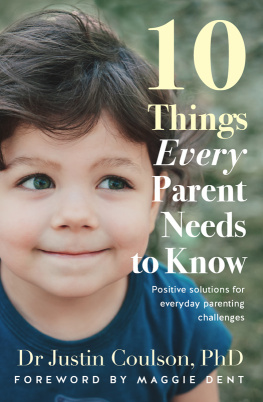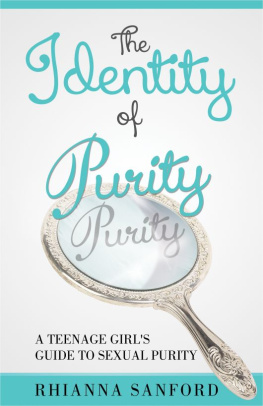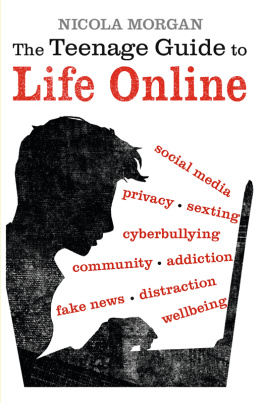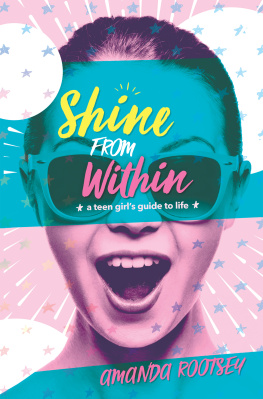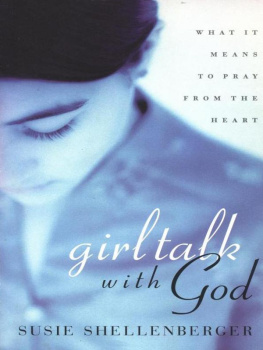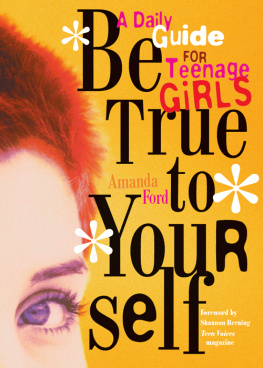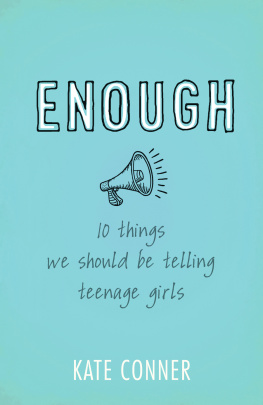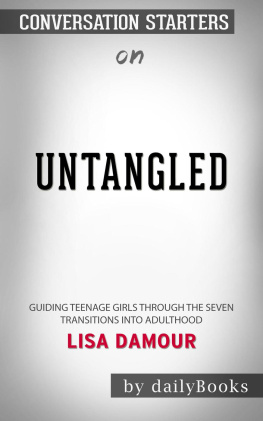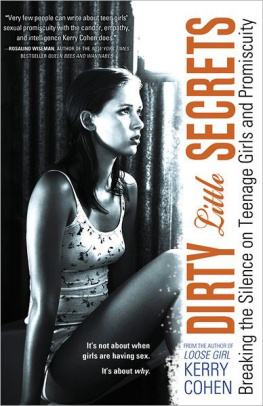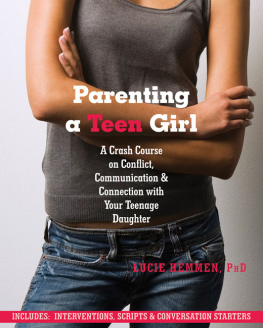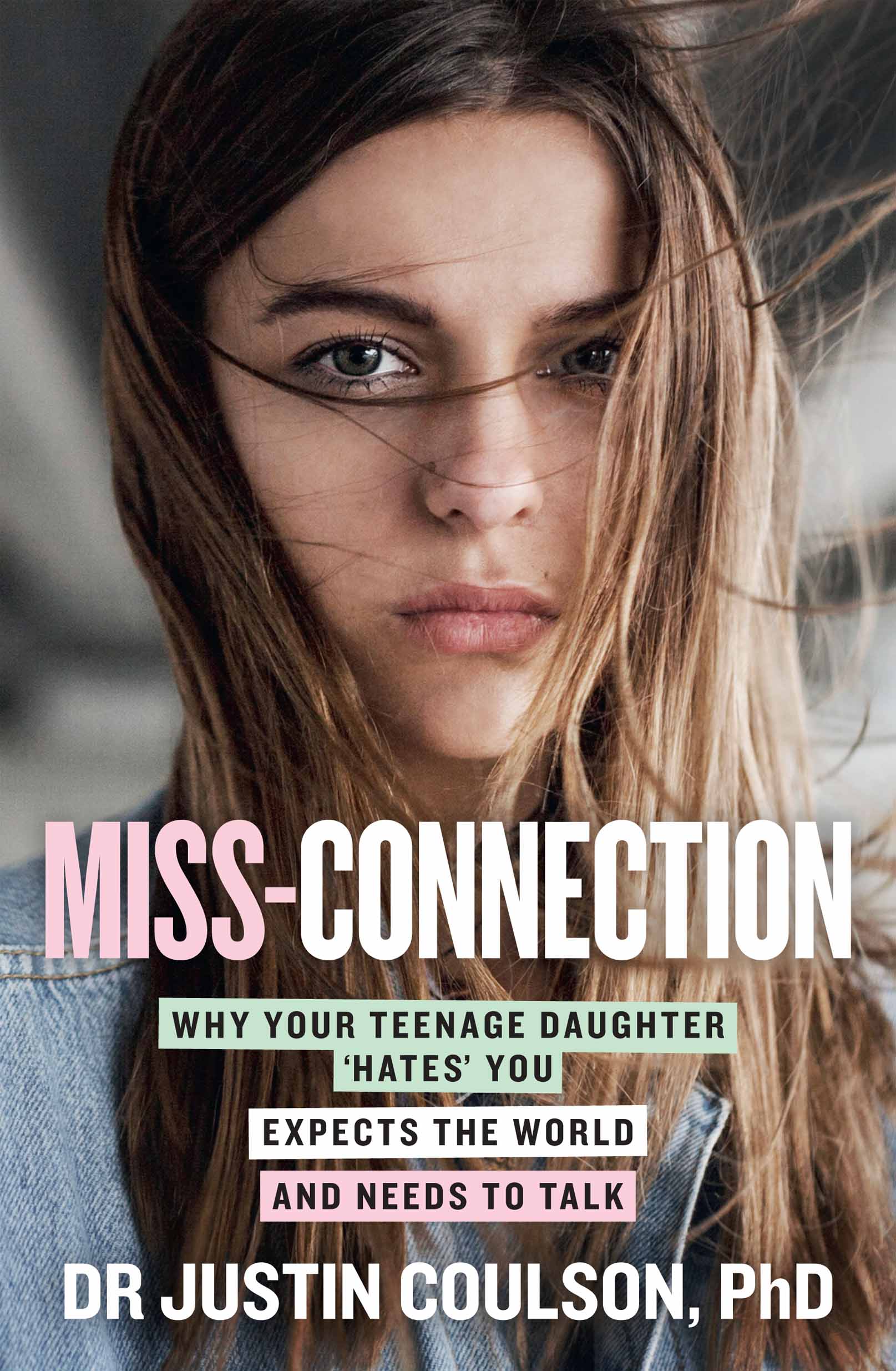Contents
Guide
In the stories shared in this book, names and other details have been altered to protect the privacy of individuals, with the exceptions of those who gave permission to use real names and in examples drawn from my own family.
People say parenting is the hardest job.
Its not. Growing up is.
Draco Malfoy, in Harry Potter and the Cursed Child
This is a book that involves the personal, even intimate, stories and descriptions from the world of teenage girls. In addition to obtaining written permission from everyone who provided me with their personal stories and information, I have gone to great lengths to disguise the details that might lead to individuals being identified. All of these changes were carefully considered so as to protect the girls and parents who spoke to me, while remaining true to the spirit of each story. The aim of this book was to reveal the characters of and challenges faced by the adolescent girls we are raising, so we can understand them more clearly and guide them more successfully. If you see yourself as a parent or your daughter in these pages, its coincidental. I also hope this will happen, because it means I have captured the essence of what it is to be a teenage girl today.
Contents
In popular culture and in many adults conversations, the teen-girl years are often referred to, with a roll of the eyes, as a time that must simply be endured by everyone else. In books, in movies and on TV, teen girls are Queen Bees, Wannabees, Bitchfaces, Princesses, Divas, Mean Girls, Drama Queens and more.
But despite the fact that many assume adolescence is marked by the sugar and spice of girlhood gone sour, for the 25 years that I have worked with young women, the trouble or troubled labels have never really resonated with what I see firsthand.
Yes, our girls may be challenging at times (as we all can be). Certainly, they are a vulnerable group. Plan Internationals 2018 annual report confirms that despite all the education campaigns aimed at reducing sexual harassment, most young women first experience intimidation when in a public space between the ages of 11 and 15. Australian research also indicates that young women aged 14 to 19 may be up to four times more likely to experience physical or sexual violence than older women.
Yet despite both their challenges and vulnerability, our girls can be hilarious, brave, creative, fiercely loyal and deeply insightful. What price will we pay if we fail to recognise and celebrate both the resilience and gorgeousness of young women? Its time to look at teenage girls through new lenses.
And what struck me in reading Miss-Connection was the fact that Dr Justin Coulson truly sees adolescent girls in all their light and shade.
Justin is an academic; he has a PhD in psychology. This book is, therefore, well researched. But when I was reading it, what I was most struck by was how this is clearly his hearts work too. As the father of six daughters, he offers warm, realistic advice. I found myself nodding along, in affirmation, but also in delight at the fact that he so clearly cares.
He wants to get this right not just for his daughters, but for all our daughters.
Justin doesnt shy away from the tough issues either, yet these are explored with empathy and compassion. But more importantly, Justin hasnt just observed; hes listened. This book is filled with firsthand insights from a diverse range of teen girls, and from the women who mother them. Hes also had meaningful conversations with colleagues and been open to learning and having his own views challenged. The discussion is considered and nuanced.
The conclusion he reaches that our girls need connection (for us to pull them in, rather than push them away) is profoundly important.
Despite the fact that our girls are saturated in marketing messages telling them they should want more stuff, in all the conversations Ive had with them, theyve spoken with yearning not for the latest iPhone or a designer dress. Rather, theyve expressed a desire for more understanding and for someone to have their back.
Justin unapologetically positions himself as their ally. He argues its time to lay down our arms against girlhood and to explore other ways of parenting that are more grounded in love, laughter and mutual respect.
He is, in fact, the male Girl Champion weve been waiting for.
Viva the revolution!
Dannielle Miller
Parenting author, teen educator, and CEO of Enlighten Education
In 1999, Kylie (my wife) and I sat in the office of a Rockhampton obstetrician for our first appointment. He propped up Kylie on the bed, rubbed some goo on his ultrasound machine and placed it on Kylies pregnant belly. A blurry image appeared on the screen. Dr Khoo pointed out our babys head, arms, legs, fingers, toes, and more. We were in awe. As our eyes absorbed every detail on the screen before us, a song came on the radio that was playing softly somewhere outside the room. A Little Ray of Sunshine. Kylie looked at me, eyes wide, and proclaimed, Were having a girl!
Later that year, we were so excited to welcome Chanel into our lives. But we worried, a lot. Could we give our daughter the opportunities we felt were important? Would she be healthy and happy? Would she have good friends? Would she be a good friend? Could we teach her well? Would she be a great student? A world leader? Could we raise her with the love she deserved? Would she love us like we loved her? Could we raise a daughter who would become a wonderful person?
As our family grew with five more daughters so too did my interest in raising children well, particularly in raising strong, caring daughters. As I have watched them grow and mature, my concern for the wellbeing of girls in our society has increased tremendously.
Endeavouring to guide our teenage daughters through a complex adolescent world is... complicated. As our girls grow, the often-thorny challenges we experience in our families require delicate and skilful labour.
I regularly speak at conferences for professionals who work with young people. You might say that the topics presented at those conferences are spicy. Teenage girls are implicated in most of them: depression, anxiety and other mental illness, sexting, self-harm, bullying and cyber-bullying, issues around sexual attitudes and experiences, pornography, unhealthy attitudes, and use of alcohol and other drugs.
Its heavy stuff.
At times, the speakers leave the audience with the impression that all of our girls (and boys) are racing towards unsafe, unhealthy choices like seagulls rushing towards a cold, soggy chip thrown by an excited toddler at the beach.
As I prepared to write this guide, I surveyed hundreds of adolescent girls around Australia. Teenage girls (aged 13 to 19) from a number of schools nationwide completed a questionnaire that asked them about their challenges, their wellbeing, their friends, and their experiences with substances, sex, and screens. I wanted all the nitty-gritty info.
I also interviewed a lot of teenage girls and women, usually mums, to understand the challenges faced by girls and their parents, and the questions each are asking. I probed and dug, endeavouring to uncover the big issues that parents are wrestling with, and that our teenage girls are distressed by or worried about. I tried to be sensitive, but I was also clear that I wanted to know the issues so I could help parents grappling with big concerns.
l had anticipated that this book would be about the moral scourges of our time and by moral scourges I mean anything that the media gets crazy about in relation to our youth: screens, bullying, eating disorders, self-harm, sex, and so on. Its true that I address several of these issues throughout this book. But thats not what this book is about. And that surprised me. This is not the book I
Next page
